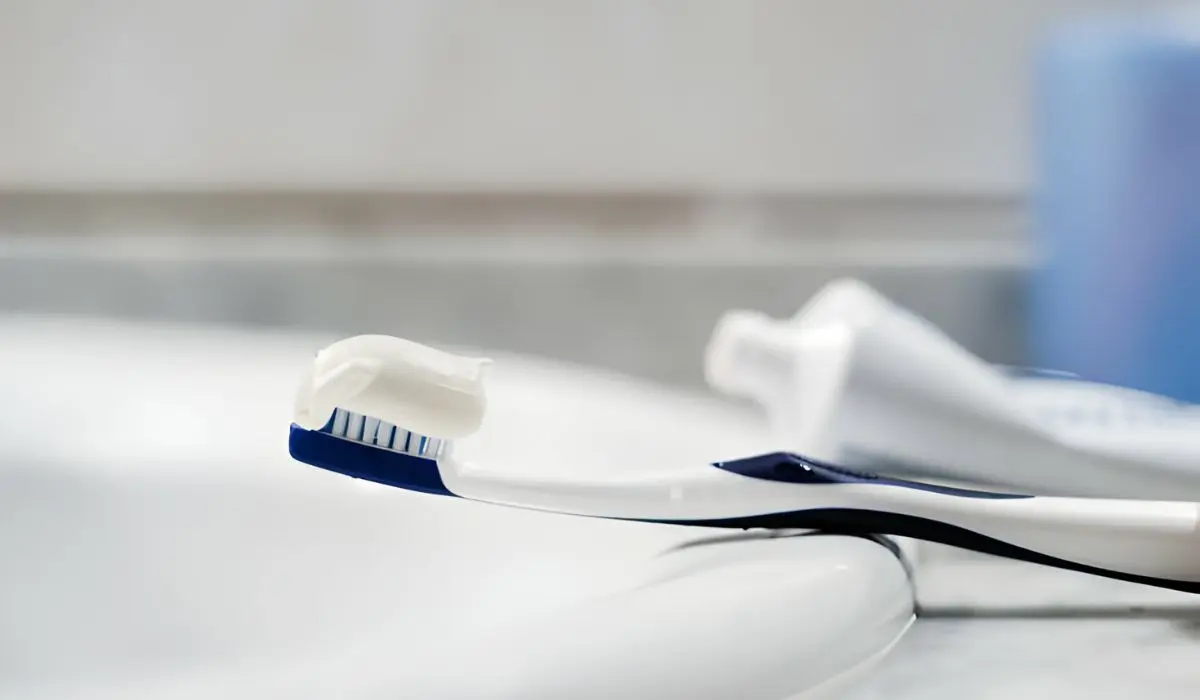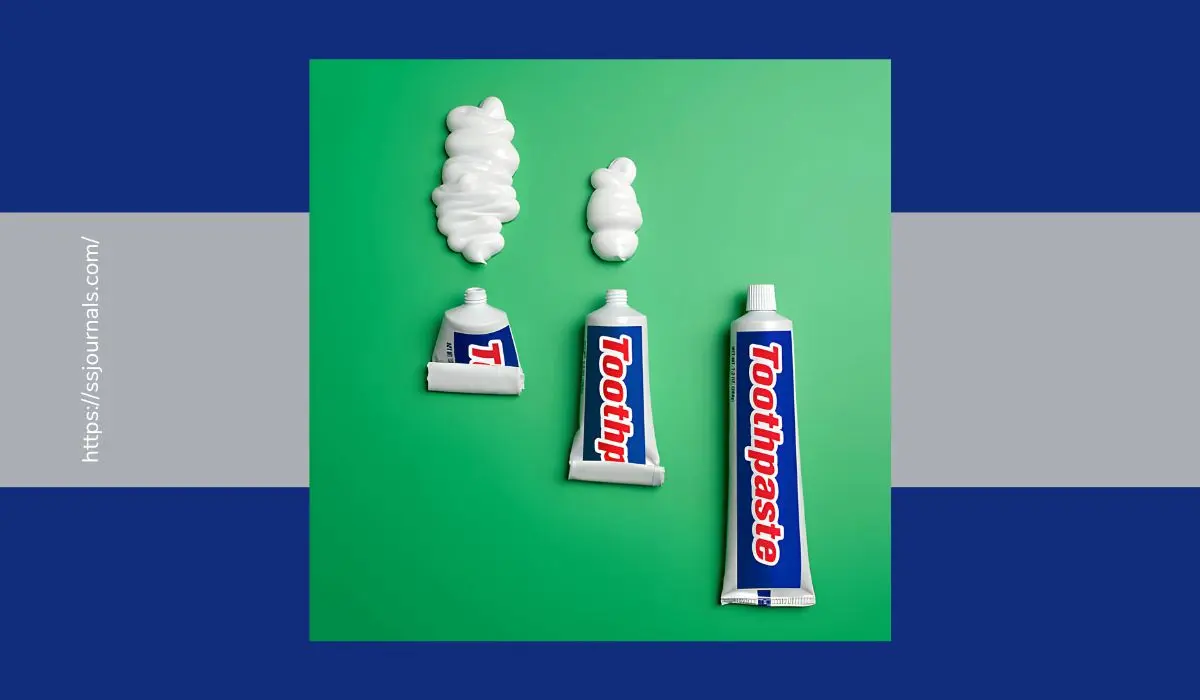In the urge for a clean, radiant smile, the simple act of brushing your teeth takes all the credit. However, when trying hard to improve dental health and appearance, individuals often make a mistake: use too much toothpaste. Yes, toothpaste over-usage is extremely common, but it isn’t the best possible effort towards oral health and hygiene. Instead, this daily morning and night routine of dental brushing requires minimal product, and over-usage of toothpaste can cause adverse effects.
What Is The Right Amount Of Toothpaste?
The quality of toothpaste on your toothbrush matters; it isn’t ‘more the merrier.’ Instead, with toothpaste, less is more.
According to the National Institute of Health and as advised by dental experts, a ‘pea-sized’ amount of toothpaste is enough. Although the amount may seem minimal, especially to those who fill their brush with toothpaste, here, minimal is sufficient.

So, why not employ more toothpaste? Well, toothpaste formulations are designed in a way that a ‘pea-sized’ amount can effectively clean your teeth. Using excessive toothpaste leads to wastefulness, and the excessive foam can cause a mess. Besides that, the concern of excessive fluoride consumption is also there.
How Much Toothpaste Should An Adult Use?
A pea-sized amount of toothpaste is sufficient for effective teeth cleaning for an adult. This is roughly the size of a green pea, and using more won’t necessarily help in deeper cleaning or enhance any benefits. A pea-sized amount ensures adequate cleaning without leaving excessive product in the mouth.
How Much Toothpaste Should A Child Use?
Children under the age of 3 require less toothpaste than Adults. Therefore, kids between 18 months and 3 years should be given a smear or rice-sized amount of toothpaste. Not only that but for young kids, it is advisable to use fluoride-free toothpaste or one with at least less fluoride.
Besides that, for kids below the age of 18 months, cleaning teeth with a wet brush is sufficient, and it isn’t necessary to employ toothpaste. Brush their teeth twice a day in a gentle and circular motion.
Does Toothpaste Overdose Affect You? Downsides Of Toothpaste Overdose?
The term ‘Toothpaste Overdose’ sounds alarming, but it typically refers to using more toothpaste than recommended. Toothpaste is safe for dental care and hygiene; however, using it excessively (or in high amounts) may have certain downsides. Here’s an overview of the same:
Fluoride Overdose:
The major concern with using more toothpaste than recommended is ‘Fluoride overdose.’ Most toothpaste contains Fluoride as an active ingredient. This mineral prevents tooth decay, strengthens tooth enamel, and accelerates remineralization. However, excessive usage of fluoride may lead to ‘Dental Fluorosis.’ This cosmetic condition is common among children and occurs by consuming too much fluoride while their teeth are still forming. Using less toothpaste is also recommended, as it is common to ingest some while brushing. However, if you use more toothpaste, the chances of ingestion (in a higher amount) increase, which may cause digestive discomfort.
Gastrointestinal Issues:
Toothpaste contains fluoride, triclosan, and other antimicrobial compounds. Using a higher amount increases the chances of ingestion, and it may cause gastrointestinal discomfort. Individuals may observe symptoms like nausea, vomiting, abdominal pain, and discomfort. The discomfort is more common amongst kids or those who don’t spit all the toothpaste after brushing.
Wastefulness:
Although it may not physically affect you, using toothpaste more than recommended leads to wastefulness. Toothpaste is formulated to provide effectiveness in a pea-sized amount, and thus, using more than that is a waste.
Foarming/ Messiness:
The more toothpaste you will use, the more foam it will create inside your mouth. Excessive toothpaste foaming not only causes messiness but also makes it difficult to brush the teeth effectively.
Potential Allergic Reactions:
Individuals who are sensitive to any ingredients present in the toothpaste may experience irritation or allergic reactions due to overdose.
Taste/ Sensory Discomfort:
Using more toothpaste in a go can lead to an overwhelming taste and, thus, a sensory discomfort. With toothpaste on your brush, you may feel an unpleasant and strong sensation in your mouth.
Increased Risk of Irritation:
Overusing toothpaste, especially abrasive toothpaste, can irritate the oral tissues. Besides that, extra toothpaste and aggressive brushing can worsen the effect.
Masking Dental Issues:
Using too much toothpaste can cause dental issues like gum bleeding and more.
Excess Product Residue:
Overusing toothpaste increases the likelihood of leaving residue in the mouth. This residue, when mixed with saliva, can enter the internal system of the body.
Misuse of Speciality Toothpaste:
Special toothpaste that is meant for teeth whitening or sensitivity, when used in excessive amounts, can cause adverse effects.
Benefits Of Dry Brushing (Using Toothbrush Without Toothpaste)
While it is safe to brush teeth using toothpaste, it is fine to do so even without the product. Dry brushing once a day (since it is recommended to brush twice a day) has its own set of benefits, including the following:
- It stimulates saliva products. Saliva helps in neutralizing acids, maintaining the pH balance of the mouth, and tooth enamel remineralization.
- Dry brushing focuses on gum stimulation and promotes blood circulation, thus keeping the gum tissues healthy.
- Dry brushing is suitable for those dealing with toothpaste sensitivity or who are looking for an alternative for a while.
- Dry brushing is ideal for those circumstances when you need a quick dental cleaning but don’t have access to water. It is also suitable for travel emergencies.
- While dry brushing is beneficial, we recommend you make it a one-time routine only. For your ‘twice daily’ brushing routine, use a fluoride-based toothpaste once.
Conclusion
The world of dental care is simple, and you do not need to complicate it with the overuse of toothpaste. Ideally, a pea-sized amount is enough for cleaning your teeth effectively. The urge to use more toothpaste is understandable; however, it isn’t the best practice to follow, given how overuse can affect your dental and physical health. So, in your teeth brushing routine from now on, be mindful of the amount of toothpaste you use.

